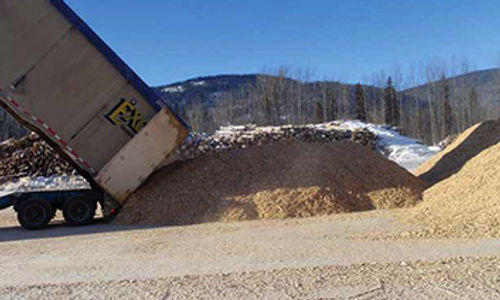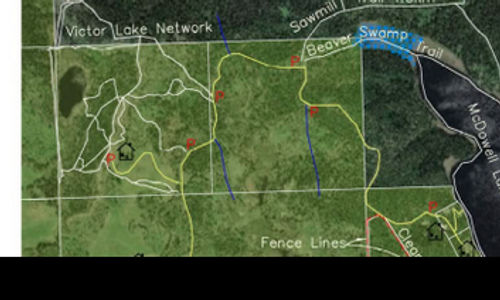Bulkley Valley Community Resources Board
Next Meeting Dates
Monday February 16th, 7-9pm (Family Day) This meeting to be held in Suite 200, 3848 3rd Avenue, Smithers
Monday March 16th, 7 -9pm
Monday April 20th, 7 -9pm
Monday May 18th (Victoria Day), 7 -9pm
Monday June 15th, 7 -9pm
Working toward sustainable land-use in the Bulkley Valley
The Bulkley Valley Community Resources Board (BVCRB) is a collection of local citizens with a range of value perspectives who guide local land-use decisions. It was first established in 1991 to complete the Bulkley Land and Resource Management Plan (LRMP), widely regarded as one of British Columbia’s most successful land-use plans. Today, the Board continues to play an important role in determining the future of land use in the Bulkley Valley.
The BVCRB still recruiting new Directors if you quad, snowmobile, hike, ski, bike, hunt, range cattle, log, are a traditional land steward. Contact us: info@bvcrb.ca.
Please note the E-NEWSLETTER Subscription Service is not currently available.
Current Discussions
A notable read
CLOSER TO THE BRINK The state of the forest in B.C. in 2025, Written by Karen Price (PhD) and Dave Daust (M.Sc., RPF) Mapping and data support by David Leversee, November 2025.
Commercial interests trump recreational access
Overlapping interests in the back country reinforce the need to work collectively on solutions that will protect shared values. The BVCRB has many observers at regularly held meetings, it's Forestry Working Group is growing and actively sharing experience with First Nations and municipal governments and others. Our guest presentations provide opportunities for members to review and comment on land use. Corresspondance with Provincial government agents reminds them of the benfits of local land use planning groups like ours. We also have planned workshops for 2026 around our commonly held values.
See here this map of the Hudson Bay Mountain Controlled Recreational Area today and in 2008. When did these borders change, was there public consultation, where are the future impact spatial models? Consultation with the CRB would have brought to light differing interests proactively, minimizing the potential for negative social conflict and environmental impacts.
Smithers chapter of Nature Kids BC is back
NatureKids BC is free to join for families with children. Joining has several benefits:
1) A quarterly magazine mailed to your home;
2) Explorer day events, the main activities, aimed at kids ages 5 to 12, but kids of all ages are welcome;
3) Other resources on the NatureKids BC website.
Parents/guardians must accompany kids during explorer days. Club liability insurance is covered by NatureKids BC. Next event: Feb 22, 2025 - Lake Kathlyn an exploration of the solar system.
Public Invited to comment on the the Bulkley-Morice Forest Landscape Plan
Check out this link announcing dates and other details. Three comunities will have open houses, Granisle, Houston and Smithers: Date: Thursday, March 6, 2025 Time: 1-3 p.m. Location: Smithers Old Church
3704 1 Ave. Smithers.
The Babine Monitoring Watershed Trust
This charity was convened to oversee the implementation and monitoring of management plans within this sensitive watershed. To kickstart the the monitoring program, a background research report was prepared early in 2004. The Babine Watershed Monitoring Trust (BWM Trust) is a Smithers-based charitable organization that coordinates monitoring of natural resources management in the Babine watershed. Established on January 27, 2005, the BWM Trust settlors believe that monitoring of natural resources in the Babine watershed must assess the implementation of land-use plan strategies and the effectiveness of those strategies in meeting key land-use plan components such as objectives. Monitoring must also be conducted in a credible manner, so that monitoring results are broadly accepted.
Thyee WHMA
The block sale has only been deferred for this fiscal year. If this sale goes forward it would set a precedent for resource development in the SRMP areas that are identified for conservation and habitat designation. Sales would be prior to the review of the Wildlife Management Area process, under the Wildlife Act.
A Mountain Bike Trail is no excuse to ignore the LRMP
The development of Hudson Bay Mountain's prairie by the SMBA was brought to the Board's attention in September, 2024. Despite the fact most of us like to bike, the CRB has oversight responsibility and the LRMP should not be ignored. There is no reason we can’t still try to protect the ecology even though it’s close to Town and easy access to treeline. The HBM master plan is in violation of the RAMP and the LRMP and there remain many unanswered questions in regards to commercial recreational access to special management zones such as this.
Ms. Lori Halls, Deputy Minister of Water, Land and Resource Stewardship
No response from Ms Halls despite community members detailing 13 specific points of disagreement with her regarding her Ministry misquoting the SRMP section 3.2.1. "..years of resources, consultation and effort go into projects and processes, which are not implemented. The solution has been to start another process or delay for more research. Without understanding and incorporating lessons learned from past, we just diminish opportunities." Director, BVCRB
Conservation Land Cancellations Inquiry Skeena Region Wide
Together the BVCRB, the Skeena Wild Conservation Trust, the Bulkley Valley Stewardship Coalition, the Kalum Plan Implementation Committee and Wildlife for Tomorrow call for an interim development moratorium on these lands. This Ministry in non responsive. The bulk of the cancellations took place in 2019 and 2020 and development of these lands continues. These WHMAs, although cancelled from the Land Act without consultation, are still legally established via the yr. 2000 Higher Level Plan that was carried forward under the 2006 Objectives Set by Government. Legally, they still are "nonadministered" conservation lands and remain under the authority of the Ministry of Water, Land & Resource Stewardship (WLRS). See the June minute postings for more information.
The Health and Quality of Old Growth
What does the Province of BC define as old growth? The presence of large life, dead trees, large woody debris? Old growth doesn’t necessarily rely on tree age, other characteristics should be respected. You can't manage old growth stand by stand. Spreadsheet tables can’t tell us the quality or health of a forest. We need a spatial plan on how to retain old growth forests. An updated State of the Forests report would also help.
Finally how do we retain old growth in the face of wildfire abatement? Where and when will the Province be able to provide clarity on these questions.
Farming with Context, Farming with What Fits in the Valley
We hear how local farmers and cattlemen are changing their operations to improve soil water retention, species diversification, predator and prey relationships, soil health and grazing outcomes. Check out our May 2023 minutes to see a summary. Challenges with grazing on Crown Land include poor Provincial long term planning and monitoring.
WHMA and Fish & Wildlife Reserve Cancellations
We have been discussing, corresponding, hearing presentations and inviting comments from the Province on this topic dating back to 2020 when it first become known the BC Crown Land Reserve Review Project undertook to reclassify these lands. Now despite historical record and community agreement with the Province, we see development happening on these lands. Len Vanderstar generously gives his time fighting for reinstatements. We have other letters of support coming in from the community. Contact your MPP to demand action.
Wildfire Risk versus Hazard
The difference is key: there is little community risk of wildfire from the Community Forest lands but yes there is hazard to the recreational users and facilities in and near the Community Forest. Pushing fire abatement as a hazard reduction strategy puts undo pressure on logging and mitigation strategies. This results in the forfeit of previously agreed to land use plans protecting common conservation, recreational, heritage and other values.
The Old Growth Deferral Strategy and it’s impact on the Bulkley LRMP
This topic dates back to the Nov. 15, 2021 meeting.
The strategy concerns the ‘irrevocable loss of old growth’ and the Province’s attempt to address long time recovery systems. The Province has identified proper rights holders as key players in the protection of old growth stands. Holders are tasked with detecting risk to old growth stands and managing forestry operations based on their values. There is no provision for joint consultation with the BVCRB board or independent foresters or other loggers to discuss protection of the values already established in the LRMP. The board frequently discusses the definitions and protection of Old Growth and provides balanced community level feedback on contentious issues.
Seymour Ridge Trail
This topic also dates back to the fall of 2021.
Some members of the board are opposed to the method of fuel management prescribed for the CORE. Logs and timber on the ground are already full of moisture and decay. Having suggested alternative fuel management strategies the Board cannot get internal consensus on the propsed fuel management prescription for the Ridge. Issues:
- fire abatement
- visualizing timber harvest and retention amounts
- other places with similar problems and solutions
- perpetual harvesting strategies
- specialized logging equipment and compact machinery

It would be useful for the CRB to have a discussion around the future of pellets in the TSA. Pressure to provide pellets for international exports affects forest level planning. Part Hemlock stands in the TSA are identified as pulp stands and Hemlock Types comprise a lot of Old Growth. Logging for chips is historical record. Logging these types of trees for pellets seems just around the corner. This could negatively impact all sorts of community values.

Special agricultural, recreational and wildlife management zones are erased from the public record. These lands are protected under the Lands Act. Check our minutes for discussions on impact and efforts to reinstate these designations.

Hudson Bay Mountain CRA 2008 and now






